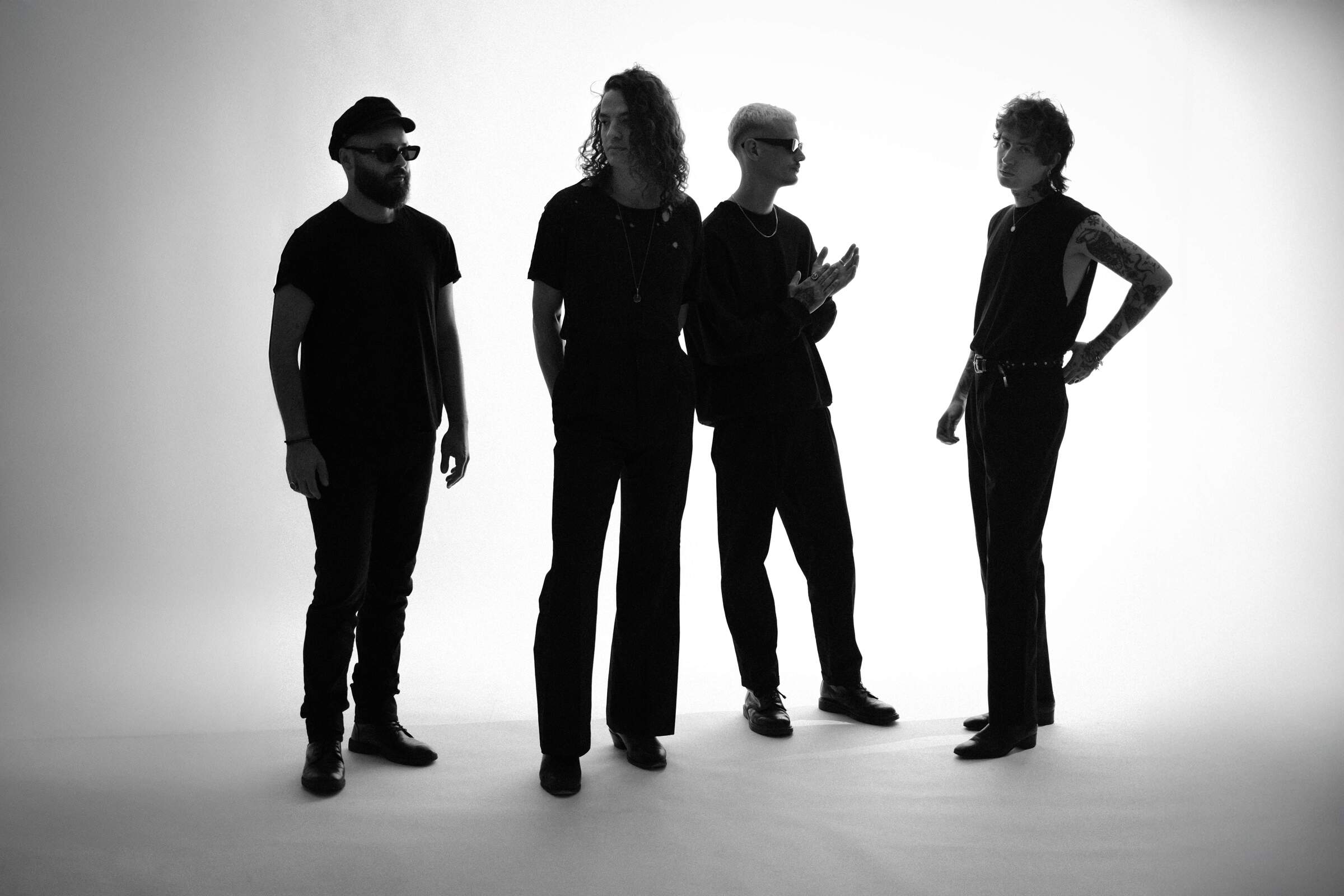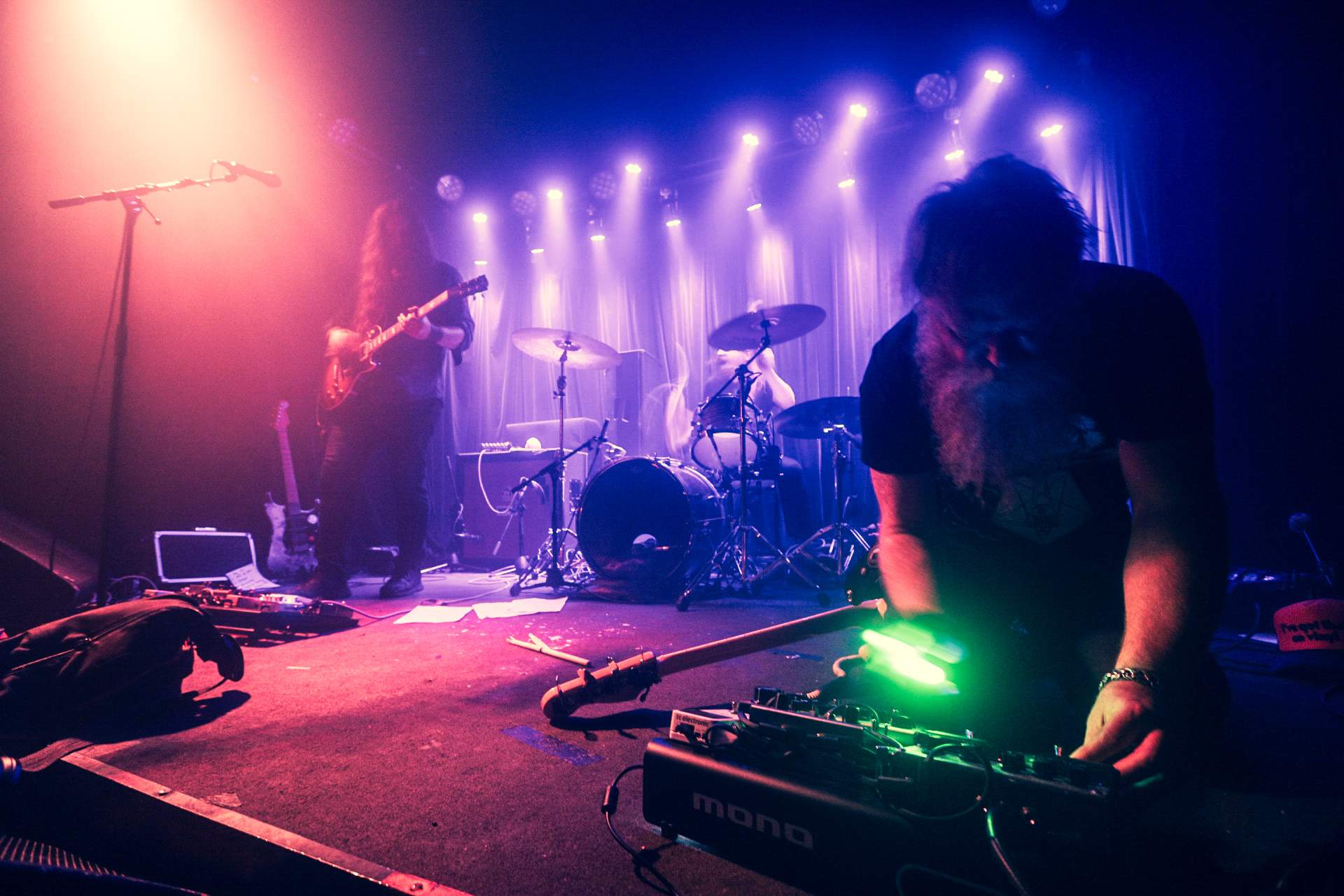Skid Row – Skid / 34 Hours (2017) review
Skid Row – Skid / 34 Hours (BGO CD1302;
38.29 / 57.33 mins)
38.29 / 57.33 mins)
The original Skid Row are usually
called Gary Moore’s band and therefore blues, but these confuse fiction with
fact. The band was actually started by bassist/vocalist Brendan ‘Brush’ Shiels,
nicknamed by his previous Uptown Band’s manager because of his moustache and
long hair (this was, after all, the age of clean-cut, sequined show bands in Ireland). And
blues is well stirred in this heady brew of flavours. The developing late ’60s Irish
rock scene boasted Taste with Rory Gallagher, Van Morrison’s Them, The Action
and Granny’s Intentions (on Deram) soon followed by Thin Lizzy.
called Gary Moore’s band and therefore blues, but these confuse fiction with
fact. The band was actually started by bassist/vocalist Brendan ‘Brush’ Shiels,
nicknamed by his previous Uptown Band’s manager because of his moustache and
long hair (this was, after all, the age of clean-cut, sequined show bands in Ireland). And
blues is well stirred in this heady brew of flavours. The developing late ’60s Irish
rock scene boasted Taste with Rory Gallagher, Van Morrison’s Them, The Action
and Granny’s Intentions (on Deram) soon followed by Thin Lizzy.
Formed in 1967 by Shiels (appropriately as
My Father’s Moustache), they actually had Phil Lynott on vocals (fresh from
Black Eagles) with Noel ‘Nollaig’ Bridgeman (drums) and Bernard Cheevers
(guitar), soon replaced by fresh-faced but longer-haired Moore decamping from
The Method. They were leading lights on the Dublin beat club scene as the first to
incorporate West Coast American psychedelic rock, mixing it with blues, country,
and jazz forms into their own prog-trio style. Shiels opened his own club (the
Ghetto) which became the famed Orphanage, a hippy hangout in Upper Mount Street referenced by Thin
Lizzy’s debut LP title and the story of Dr Strangely Strange (Moore and Shiels played
on their second album on Vertigo). Skid Row recorded two singles for the local
Song label: the first in Incredible String Band mode (Johnny Moynihan of
Sweeney’s Men guested on tin whistle), then in psych style reminiscent of
Traffic. Lynott contracted tonsillitis so Shiels took over vocals and, when
Lynott picked up bass to form Orphanage, remained a trio forging their own
style.
My Father’s Moustache), they actually had Phil Lynott on vocals (fresh from
Black Eagles) with Noel ‘Nollaig’ Bridgeman (drums) and Bernard Cheevers
(guitar), soon replaced by fresh-faced but longer-haired Moore decamping from
The Method. They were leading lights on the Dublin beat club scene as the first to
incorporate West Coast American psychedelic rock, mixing it with blues, country,
and jazz forms into their own prog-trio style. Shiels opened his own club (the
Ghetto) which became the famed Orphanage, a hippy hangout in Upper Mount Street referenced by Thin
Lizzy’s debut LP title and the story of Dr Strangely Strange (Moore and Shiels played
on their second album on Vertigo). Skid Row recorded two singles for the local
Song label: the first in Incredible String Band mode (Johnny Moynihan of
Sweeney’s Men guested on tin whistle), then in psych style reminiscent of
Traffic. Lynott contracted tonsillitis so Shiels took over vocals and, when
Lynott picked up bass to form Orphanage, remained a trio forging their own
style.
Opening for Blodwyn Pig and Fleetwood Mac,
the impressed Pete Green recommended them to their manager who signed them up. (Moore’s
beloved 1959 Gibson was in fact sold to him by Green.) John Peel enthused too so
Skid Row recorded on his radio show then signed to CBS for their debut, its
cover shot taken outside the Dublin Gas Company (an alias too for a 1984
release from 1969). From the first session in April 1970 only a 45 was
released, included as two among six bonuses on this new remastered two-CD
release by BGO of Skid Row’s first LPs. The single was an hourly “power play”
on Radio Luxembourg, but the
other recordings didn’t come out until 1987 because considered unrepresentative
following a US
tour.
the impressed Pete Green recommended them to their manager who signed them up. (Moore’s
beloved 1959 Gibson was in fact sold to him by Green.) John Peel enthused too so
Skid Row recorded on his radio show then signed to CBS for their debut, its
cover shot taken outside the Dublin Gas Company (an alias too for a 1984
release from 1969). From the first session in April 1970 only a 45 was
released, included as two among six bonuses on this new remastered two-CD
release by BGO of Skid Row’s first LPs. The single was an hourly “power play”
on Radio Luxembourg, but the
other recordings didn’t come out until 1987 because considered unrepresentative
following a US
tour.
This
is surprising because their originality features diverse styles, only partly
captured on the nine-track debut which was a second session recorded in eleven
hours adding four new replacement tracks (but with the ear-marked Pete Green
absent). ‘Skid’, released in October
1970, bolts from the traps with effects and staccato rhythm (‘Mad Dog Woman’)
then Juicy Lucy-like vocals echoing lead guitar with Redbone-like native drum
patterns (‘Virgo’s Daughter’), as on the closer too. The laid-back
country-blues of ‘Heading Home Again’, the album’s only lull, precedes the
boogie of ‘An Awful Lot of Woman’ with cutting solos, pumping bass and
imaginative drums.
is surprising because their originality features diverse styles, only partly
captured on the nine-track debut which was a second session recorded in eleven
hours adding four new replacement tracks (but with the ear-marked Pete Green
absent). ‘Skid’, released in October
1970, bolts from the traps with effects and staccato rhythm (‘Mad Dog Woman’)
then Juicy Lucy-like vocals echoing lead guitar with Redbone-like native drum
patterns (‘Virgo’s Daughter’), as on the closer too. The laid-back
country-blues of ‘Heading Home Again’, the album’s only lull, precedes the
boogie of ‘An Awful Lot of Woman’ with cutting solos, pumping bass and
imaginative drums.
The pace doesn’t abate for souped-up prog
swirls (‘’For Those Who Do’), psychedelia (‘The Man Who Never Was’) and
jazz-on-acid (‘After I Am Gone’), rounding off with the final crescendo ‘Felicity’,
a nine-minute sole-write by Moore.
This wig-out, and ‘Unco-Up Showband Blues’, show that the power trio could
sound almost orchestral or as if an organ chucked in too, while all share
vocals that are sometimes jazz-flecked. Virtuosity isn’t only Moore’s either: complex but tight arrangements,
mirroring their on-stage energy, with imaginative lyrics corrosively-delivered,
show an innovative trio like Budgie or Clear Blue Sky.
swirls (‘’For Those Who Do’), psychedelia (‘The Man Who Never Was’) and
jazz-on-acid (‘After I Am Gone’), rounding off with the final crescendo ‘Felicity’,
a nine-minute sole-write by Moore.
This wig-out, and ‘Unco-Up Showband Blues’, show that the power trio could
sound almost orchestral or as if an organ chucked in too, while all share
vocals that are sometimes jazz-flecked. Virtuosity isn’t only Moore’s either: complex but tight arrangements,
mirroring their on-stage energy, with imaginative lyrics corrosively-delivered,
show an innovative trio like Budgie or Clear Blue Sky.
The teenagers plus a 25 year-old Shiels (an
ex-footballer for Bohemian FC, who else) show traces too of Juicy Lucy, Spirit
and Mountain in their roller-coaster ride. The red-and-black artwork (an
emaciated bird and aggrieved gypsy in a hat?) looks menacingly disfigured
reflecting the band’s sinister, loud progressive rock and theatrics when Shiels
prowled the stage. The at-times dissonant or odd combinations of melody, heavy
blues or jazz hybrid rock with wide extended solos within unusual time
signatures proves a powerful, high-level debut which reached #30 in the UK charts.
ex-footballer for Bohemian FC, who else) show traces too of Juicy Lucy, Spirit
and Mountain in their roller-coaster ride. The red-and-black artwork (an
emaciated bird and aggrieved gypsy in a hat?) looks menacingly disfigured
reflecting the band’s sinister, loud progressive rock and theatrics when Shiels
prowled the stage. The at-times dissonant or odd combinations of melody, heavy
blues or jazz hybrid rock with wide extended solos within unusual time
signatures proves a powerful, high-level debut which reached #30 in the UK charts.
With a £10,000 advance they played the
Fillmore West with Frank Zappa and stateside with Jethro Tull, Ten Years After,
Santana and the Allman Brothers, to rave reviews. Shiels says they “blew Iggy
and the Stooges off stage” in Detroit.
After a tour with Canned Heat, performing at Dublin’s National Stadium and on
German TV’s Beat Club (where the LP’s
cover was photographed), they returned to London’s Belsize Park in late 1971 to
record their second CBS album 34 Hours,
the recording period of its six tracks. The longer studio time resulted in a
clearer focus while retaining the eclectic, angular heaviness of their unique ‘head’
sound.
Fillmore West with Frank Zappa and stateside with Jethro Tull, Ten Years After,
Santana and the Allman Brothers, to rave reviews. Shiels says they “blew Iggy
and the Stooges off stage” in Detroit.
After a tour with Canned Heat, performing at Dublin’s National Stadium and on
German TV’s Beat Club (where the LP’s
cover was photographed), they returned to London’s Belsize Park in late 1971 to
record their second CBS album 34 Hours,
the recording period of its six tracks. The longer studio time resulted in a
clearer focus while retaining the eclectic, angular heaviness of their unique ‘head’
sound.
A spooky intro with bass then guitar
crescendo and drum-roll shift into driving riffs about a woman (‘Night of the Warm
Witch’ including ‘The Following Morning’, slap that oink for quipping
tongue-in-cheek!). Experiments include a violin-like sound via amps and pedals,
which Stray also did, returning to the opening with spacey effects reminiscent
of Steve Hillage’s Khan. This nine-minute group-write epic is atmospherically dramatic
with complex melody patterns behind Moore’s
growling vocals. It was abridged for a single backed by a bonus here ‘Mr.
De-Luxe,’ a pile-driving, strutting homage to their photographer over twin lead
vocals.
crescendo and drum-roll shift into driving riffs about a woman (‘Night of the Warm
Witch’ including ‘The Following Morning’, slap that oink for quipping
tongue-in-cheek!). Experiments include a violin-like sound via amps and pedals,
which Stray also did, returning to the opening with spacey effects reminiscent
of Steve Hillage’s Khan. This nine-minute group-write epic is atmospherically dramatic
with complex melody patterns behind Moore’s
growling vocals. It was abridged for a single backed by a bonus here ‘Mr.
De-Luxe,’ a pile-driving, strutting homage to their photographer over twin lead
vocals.
34
Hours rolls on with the hyper-driving ‘First Thing in the Morning / Last
Thing at Night’, played straight without double-tracking, then Shiels takes
lead vocals and second guitar with the roadie on bass for ‘Mar’, Shiels’
love-song to his wife. John O’Regan in the booklet compares this power-ballad
to Derek and the Dominoes years later. ‘Go, I’m Never Gonna Let You’ is an
extended heavy blues jam-frolic of over eight minutes: abrasive Quo-like
12-bar, mean vocals and some of Moore’s
most out-there soloing. ‘Lonesome Still’ returns to the West Coast country rock
featured on their debut, saccharin-free thankfully, with accordion by drummer
Nollaig and bottle-neck through a Vox pedal replicating steel guitar.
Hours rolls on with the hyper-driving ‘First Thing in the Morning / Last
Thing at Night’, played straight without double-tracking, then Shiels takes
lead vocals and second guitar with the roadie on bass for ‘Mar’, Shiels’
love-song to his wife. John O’Regan in the booklet compares this power-ballad
to Derek and the Dominoes years later. ‘Go, I’m Never Gonna Let You’ is an
extended heavy blues jam-frolic of over eight minutes: abrasive Quo-like
12-bar, mean vocals and some of Moore’s
most out-there soloing. ‘Lonesome Still’ returns to the West Coast country rock
featured on their debut, saccharin-free thankfully, with accordion by drummer
Nollaig and bottle-neck through a Vox pedal replicating steel guitar.
‘The Love Story (Parts 1-4)’ is a ‘closing
volley of controlled mayhem’. One might think the subject is the album’s theme but
here refers to Gary Moore’s guitar. Solos and riffs aplenty, pounding but
inventive bass/drums and (sometimes) jazzy percussive vocals, the band called it
Bog Rock: no definite path but smells great! Aside from the aforementioned ‘Mr.
De-Luxe’, five more bonuses include the only slow track, ‘New Faces Old Places’
from their unused first CBS session produced by Mike Smith (one of their
earliest songs). Two Brinsley Schwarz-like sides of a 1970 single (‘Sandy’s
Gone Part 1 & 2’) also resurface with piano, choral-like harmonies and one
of Moore’s restrained solos. Two of his songs too: ‘Morning Star Avenue’, with
a Hillage-like solo over jazz bass and drums, and ‘Oi’ll Tell You Later’ with
twin solos like fellow-Gibson guitarist John McLaughlin. Reviewing this LP, Billboard opined that “the lads will go
far”. The same year Skid Row recorded an In
Concert for the BBC and headlined London’s
Marquee club in November.
volley of controlled mayhem’. One might think the subject is the album’s theme but
here refers to Gary Moore’s guitar. Solos and riffs aplenty, pounding but
inventive bass/drums and (sometimes) jazzy percussive vocals, the band called it
Bog Rock: no definite path but smells great! Aside from the aforementioned ‘Mr.
De-Luxe’, five more bonuses include the only slow track, ‘New Faces Old Places’
from their unused first CBS session produced by Mike Smith (one of their
earliest songs). Two Brinsley Schwarz-like sides of a 1970 single (‘Sandy’s
Gone Part 1 & 2’) also resurface with piano, choral-like harmonies and one
of Moore’s restrained solos. Two of his songs too: ‘Morning Star Avenue’, with
a Hillage-like solo over jazz bass and drums, and ‘Oi’ll Tell You Later’ with
twin solos like fellow-Gibson guitarist John McLaughlin. Reviewing this LP, Billboard opined that “the lads will go
far”. The same year Skid Row recorded an In
Concert for the BBC and headlined London’s
Marquee club in November.
Recording a third platter soon after,
unreleased until 1990, Gary Moore left in ’72 for a solo career supported by
CBS who issued his first LP the next year. He was replaced by Eric Bell from
Thin Lizzy but soon split over financial problems. They sporadically reformed
with differing line-ups over the following decades, alternating with Shiels’
solo albums and radio work. Under-recognised drummer Noel Bridgeman worked in
numerous bands and more recently in Van Morrison’s combo. Various albums have
been released with the Skid Row moniker, including Bon Jovi Never Rang Me (2012) referencing the nicking of the band
name.
unreleased until 1990, Gary Moore left in ’72 for a solo career supported by
CBS who issued his first LP the next year. He was replaced by Eric Bell from
Thin Lizzy but soon split over financial problems. They sporadically reformed
with differing line-ups over the following decades, alternating with Shiels’
solo albums and radio work. Under-recognised drummer Noel Bridgeman worked in
numerous bands and more recently in Van Morrison’s combo. Various albums have
been released with the Skid Row moniker, including Bon Jovi Never Rang Me (2012) referencing the nicking of the band
name.
These two albums, superbly remastered loud
and clear, come with a well-illustrated informative booklet including ‘Brush’
Shiels’ comments. The big label knew what they were doing but could have done
more for what is in the Cream / Taste vein with a sound all their own. One
historian rightly says this dynamically innovative hard rock, meant to help
listeners feel as well as hear the sounds, “deserves to be included in all
written work on the history of rock music” (Mark Prendergast Irish Rock: Roots, Personalities, Directions
1987).
and clear, come with a well-illustrated informative booklet including ‘Brush’
Shiels’ comments. The big label knew what they were doing but could have done
more for what is in the Cream / Taste vein with a sound all their own. One
historian rightly says this dynamically innovative hard rock, meant to help
listeners feel as well as hear the sounds, “deserves to be included in all
written work on the history of rock music” (Mark Prendergast Irish Rock: Roots, Personalities, Directions
1987).
With power riffs bouncing solos from all
sides, an inventive but strong rhythm engine and vocals, Skid Row packed an
explosive punch, dexterous as a heavyweight champion. CBS publicity proclaimed an
“explosive sound”, always with space for Gary Moore’s pyrotechnics. Two legends
in their homeland and a stolen name stateside later, Skid Row might have escaped
your radar. A pity because this is some voyage before the deluge, but can now
be easily rectified with this definitive reissue of a band that deserved more
than a faint blip on rock’s spectrum outside Ireland.
sides, an inventive but strong rhythm engine and vocals, Skid Row packed an
explosive punch, dexterous as a heavyweight champion. CBS publicity proclaimed an
“explosive sound”, always with space for Gary Moore’s pyrotechnics. Two legends
in their homeland and a stolen name stateside later, Skid Row might have escaped
your radar. A pity because this is some voyage before the deluge, but can now
be easily rectified with this definitive reissue of a band that deserved more
than a faint blip on rock’s spectrum outside Ireland.
– Brian R. Banks
© Copyright http://www.psychedelicbabymag.com/2017
Array




